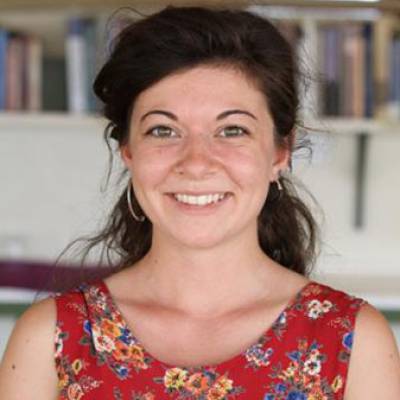MSc in Human Evolution and Behaviour: high-quality publications - and PhD candidates
23 May 2017
The Master in Human Evolution and Behaviour at the UCL Department of Anthropology has run for two decades. Many of our graduates have since become leading academics in their own right. Below is a selection of career trajectories and current publications of some of our recent graduates - including a student blog that garnered 700.000 views... Prof Volker Sommer, Tutor, MSc HEB

Adriana Lowe (2013/14 cohort) studied olive baboons in Nigeria for her dissertation, joining the team of the Gashaka Primate Project. After graduation, Adriana won herself a University of Kent 50th Anniversary Scholarship to work towards a PhD at the School of Anthropology and Conservation at Kent. Adriana was involved in the data collection and write-up of a major review article on the Gashaka baboons: Sommer, Volker; Adriana Lowe, Gonçalo Jesus, Nienke Alberts, Yaelle Bouquet, David M. Inglis, Megan Peterson, Eelco van Riel, James Thompson, Caroline Ross (2016). Antelope predation by Nigerian forest baboons: Ecological and behavioural correlates. Folia Primatologica 87: 67-90. doi: 10.1159/00044583

Katarina Almeida-Warren (2014/15 cohort) was supported during her studies by a Daryll Forde Studentship of UCL's Department of Anthropology (2014). For her dissertation, she collected data at the Ugalla Primate Project in Tanzania, supported by The Boise Trust Fund Award, University of Oxford (2016). Her thesis made it onto the Dean's List for Academic Excellence, Faculty of Social and Historical Sciences, UCL (2015). Katarina has since won a scholarship from the Portuguese Government (Fundação para a Ciência e Tecnologia) to work towards a PhD at the Institute of Cognitive and Evolutionary Anthropology, University of Oxford. The main results of her dissertation are published as: Almeida-Warren, Katarina; Volker Sommer, Alex K. Piel, Alejandra Pascual-Garrido (2017). Raw material procurement for termite fishing tools by wild chimpanzees in the Issa valley, western Tanzania. American Journal of Physical Anthropology

Dana Bentzen-Bilkvist (2014/15 cohort) is now a research analyst at M-Brain in Ontario, Canada, a global information services company. For her master dissertation, she ran cognitive experiments and questionnaires, the results of which were published as: Bentzen-Bilkvist, Dana; Andrea Bamberg Migliano & Lucio Vinicius (2016). Behavioural phenotypes and the structure of human cognition. Evolutionary Biology. Published Nov16. doi: 10.1007/s11692-016-9399-y

James Gilbert (2014/15 cohort) produced a dissertation based on fieldwork in Northern Ireland. He has since won a studentship in the London-based NERC Doctoral Training Programme. The results of his thesis were published as: Gilbert, James; Caroline Uggla & Ruth Mace (2016). Knowing your neighbourhood: local ecology and personal experience predict neighbourhood perceptions in Belfast, Northern Ireland. Royal Society Open Science. Published 07Dec16. doi: 10.1098/rsos.160468

Lucas Goldstone (2014/15 cohort) collected data for his master thesis at the Lui Kotale Bonobo Project in the Democratic Republic of Congo. After graduating, Lucas became a PhD student at the Graduate School of Systemic Neurosciences at the (LMU) Ludwig-Maximilians-Universität München, Germany. The main findings of his thesis were published as: Goldstone, Lucas Guével; Volker Sommer, Niina Nurmi, Colleen Stephens & Barbara Fruth (2016). Food begging in wild bonobos (Pan paniscus): assessing relationship quality? Primates 57: 367-376. doi: 10.1007/s10329-016-0522-6

Matilda-jane Brinde (2014/15 cohort) based her dissertation on Bayesian phylogenetic methods. She has since won a studentship in the London-based NERC Doctoral Training Programme and works towards a PhD at the Department of Anthropology, UCL and the Zoological Society of London. The publication of Matilda's thesis generated wide-spread interest in the national and international media, including Science News, Nature Research Highlights, The Independent, The Guardian, Scientific American, and WIRED. Her blog for 'The Conversation', entitled "How penis bones help primates win the mating game - and why humans might have lost theirs" garnered an astonishing 700,000 views. The original paper was published as: Brindle, Matilda & Christopher Opie (2016). Postcopulatory sexual selection influences baculum evolution in primates and carnivores. Proceedings of the Royal Society B 283. Published 14Dec16. doi: 10.1098/rspb.2016.1736
 Close
Close

